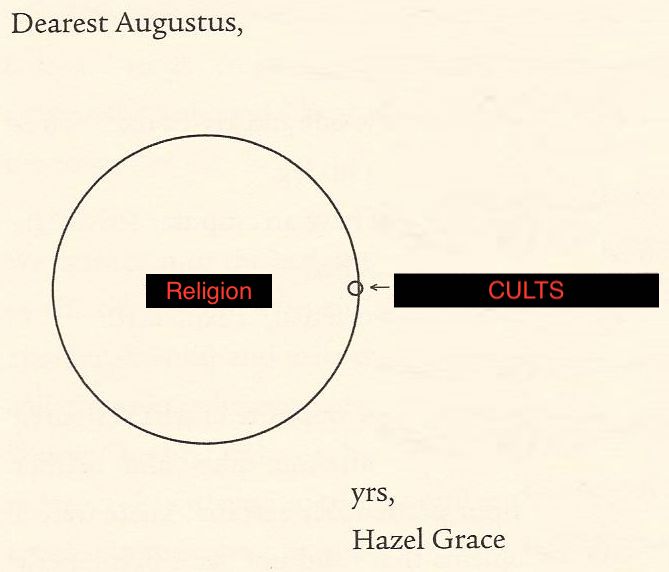R&E - TEST 1
0.0(0)
Card Sorting
1/24
Earn XP
Description and Tags
Study Analytics
Name | Mastery | Learn | Test | Matching | Spaced |
|---|
No study sessions yet.
25 Terms
1
New cards
cult
a small (typically but not always) religious group that is (very obviously) not part of a larger and more accepted religion and that has beliefs regarded by many people as extreme or dangerous
2
New cards
group identity
feeling like or at least identifying as a part of a named group
3
New cards
passion/devotion
highly emotional devotion and desire for something
4
New cards
philosophy
highly rational way of explaining things
5
New cards
praxis
practices and rituals that accomplish important goals
6
New cards
religion
a sincerely and deeply held system of beliefs and practices that are intimately connected to a transcendent force or being in such a way that it explains life in a way that shapes all a person does and is and identifies a person as a member of one group and not others
7
New cards
ritual
something that happens in order during a certain time; has a specific goal and often has transcendence
8
New cards
sacred
holy or divine or righteous in some way
9
New cards
secular
something not tied to religion
10
New cards
spirituality
a connection with the unseen and inexplicable
11
New cards
(transcend)ence
(to raise above; go beyond) fits a lot of different religions
12
New cards
worldview
how you see life is how that shapes everything else
13
New cards
worship
severance and adoration for a god
14
New cards
what is a religious marker
a characteristic or attribute that indicates something is sacred or connected to religion in some way
15
New cards
specific examples of religious markers
cross, hijabs, the crescent moon and star, star of David
16
New cards
examples from any religion of such markers
cross (christian), hijabs (muslim), crescent moon and stars (islam), star of David (jews and judaism)
17
New cards
traits that MUST be there to be a religion
group identity, worldview, philosophy, praxis, spirituality, passion
18
New cards
why are people religious
expectations of others, to form a spiritual connection, gain a community, sense of meaning, guidance, cope, avoid negative consequences
19
New cards
What is the problem with judging the quality of an entire religion based on groups like ISIS terrorists or the KKK?
you aren't understanding the values and morals of the whole religion but rather of this group in particular that claims to represent that religion (does this make sense)
20
New cards
Why did Stephen Prothero think it was neither practical nor wise to try to keep religion a private matter?
because religion is impossible to keep tucked away. it's a huge part of you and must be talked about because it's deep-rooted.
21
New cards
specific historical/social events that make people say religion is bad for the world.
rationalizing slavery, war (crusades, jihad), killing people who do wrong, forcefully making others do things/behave
22
New cards
specific historical/social events that make people say religion is good for the world.
generally produces better morals, civil rights movement, gives answers science cannot, the salvation army, gospel/christian music, abolition movements
23
New cards
is religion a gun or hammer? what's the diff and why's it matter?
hammer: can destroy and build / gun: can only destroy; religion is a hammer because it can build someone up and make them a better person or it can ruin them. religion has to be handled with care because it can do both; it matters how you choose to use religion
24
New cards
what other non-religious factors usually contribute to religion being misused in bad ways? (otherwise; what turns religion bad)
control/ego, personal gain (money, power, sex), retaliation/tradition, blind obedience, views taken too literal
25
New cards
what separates religion from a cult
most cults are religious, but not all religions are cults; the key difference is extremities and coercions
